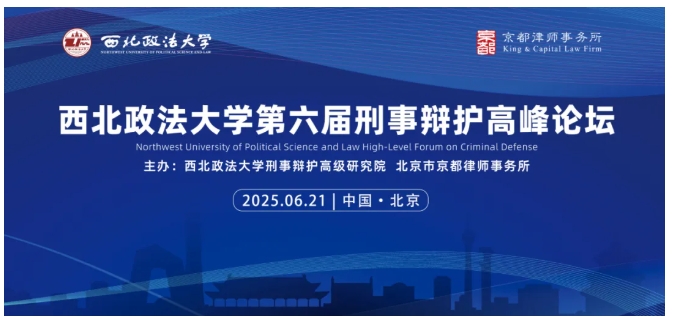
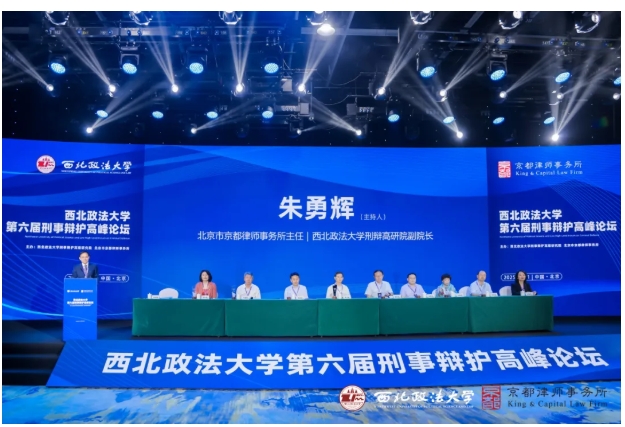
The Sixth Criminal Defense Summit Forum of Northwest University of Political Science and Law
As society develops and the rule of law progresses, issues related to the jurisdiction of criminal cases have become increasingly complex. Practical cases that have sparked heated debate have been on the rise year by year, while theoretical research has also been deepening and expanding.
On June 21, 2025, the Sixth Criminal Defense Summit Forum of Northwest University of Political Science and Law, co-hosted by the Advanced Research Institute of Criminal Defense of Northwest University of Political Science and Law and King&Capital Law Firm, was held in Beijing. The forum focused on “jurisdiction issues in criminal cases.” Nearly 50 legal experts and scholars, as well as hundreds of lawyers, participated in the discussion and conducted in-depth discussions on the many issues facing the jurisdiction of criminal cases and possible solutions.
The opening ceremony of the event was presided over by Zhu Yonghui, director of King&Capital Law Firm and vice president of the Advanced Research Institute for Criminal Defense at Northwest University of Political Science and Law.
Ma Zhaochi, Vice President of Northwest University of Political Science and Law, and other experts delivered opening remarks.
At the opening ceremony, Ma Zhaochi, Vice President of Northwest University of Political Science and Law, Gao Mingxuan, Honorary Professor of Renmin University of China, Jiang Wei, President of the China Law Society Network and Information Law Research Association and Deputy Director of the Advisory Committee of the Supreme People's Court, and Tian Wenchang, Honorary Director of Beijing King&Capital Law Firm and Honorary President of the Advanced Research Institute of Criminal Defense of Northwest University of Political Science and Law, delivered speeches.
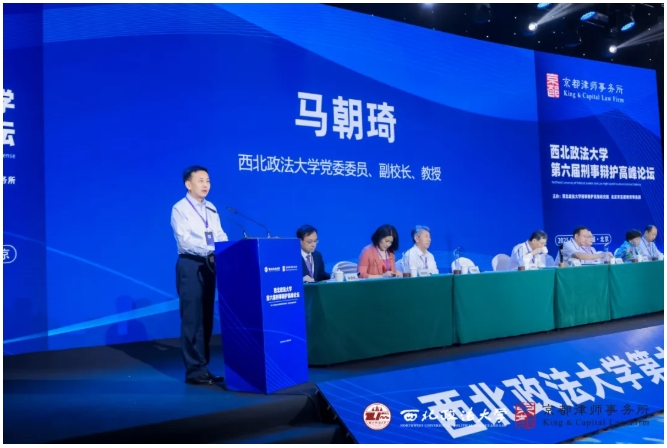
Ma Chaoqi, Vice President of Northwest University of Political Science and Law, delivered the opening address.
Ma Chaoqi extended a warm welcome to the conference delegates. He introduced the development history of Northwest University of Political Science and Law and commended the achievements made by the Advanced Research Institute for Criminal Defense in conducting standardized training on criminal defense skills, conducting theoretical research on criminal defense, and cultivating talent in criminal defense. Currently, the Criminal Procedure Law is undergoing its fourth revision, and this forum focuses on jurisdictional challenges. He expressed his hope that participants would reach more consensus and produce more outcomes at this forum, contributing to the improvement of China's criminal defense system and the progress of criminal justice.
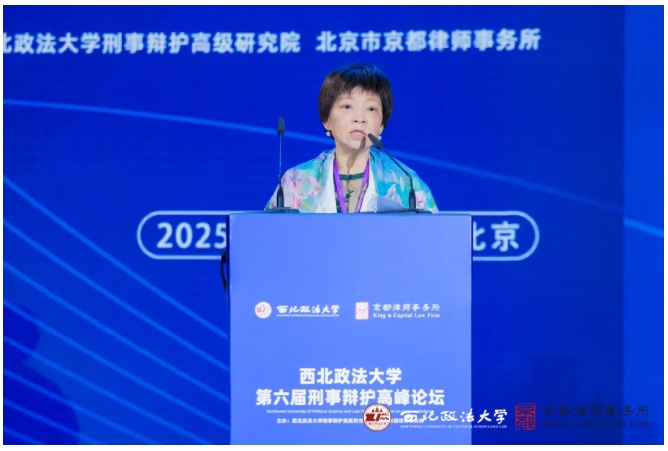
Professor Wang Xiumei from Beijing Normal University read out a congratulatory letter on behalf of Professor Gao Mingxuan
Professor Wang Xiumei from Beijing Normal University read out a congratulatory letter on behalf of Professor Gao Mingxuan. Gao Mingxuan stated that the theme of this forum revolves around criminal jurisdiction issues, which holds significant practical and academic value. He said that criminal case jurisdiction, as the initial stage of criminal proceedings, is a crucial foundation for the fair and efficient operation of criminal justice. It not only concerns whether cases can be properly handled but also directly impacts the legitimate rights and interests of parties involved. “In the current context of evolving judicial practices and the emergence of new types of cases, in-depth exploration of criminal case jurisdiction issues can help us identify bottlenecks and challenges in the system, promote the improvement of criminal justice systems, and ensure that every case is resolved fairly and justly on the correct track.”
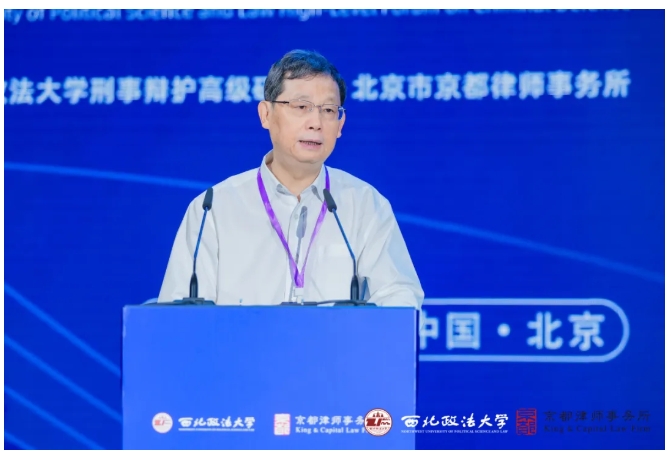
Jiang Wei, President of the China Society of Network and Information Law, delivers a speech
“In the face of practical challenges in criminal case jurisdiction, establishing a remedy procedure for jurisdictional objections in criminal cases holds significant legal significance.” " Jiang Wei mentioned in his address that China has established a jurisdiction objection system through the Civil Procedure Law, but criminal litigation has long lacked such a remedy mechanism, which is related to the relatively complex nature of establishing a procedural safeguard mechanism for criminal case jurisdiction objections. He suggested that pilot programs at local courts, judicial interpretations, and legislative initiatives could be used to encourage multi-party participation, making criminal case jurisdiction a bridge to judicial fairness and promoting the further development of China's criminal litigation system to be more just, fair, and efficient.
Tian Wenchang reviewed the first five themes of the Northwest University of Political Science and Law's Advanced Institute for Criminal Defense, introduced the institute's efforts and achievements in cultivating criminal defense talent, and specifically mentioned the institute's training model. He believes that the Advanced Research Institute for Criminal Defense promotes training through research and research through training, and that the interaction between the two complements each other, which is an effective attempt to solve the problem of the disconnect between theory and practice. This forum combines theory and practice and can contribute to the development and innovation of criminal defense theory and practice.
Cybercrime in the Internet Age Becomes the Focus of Keynote Speeches and Discussions
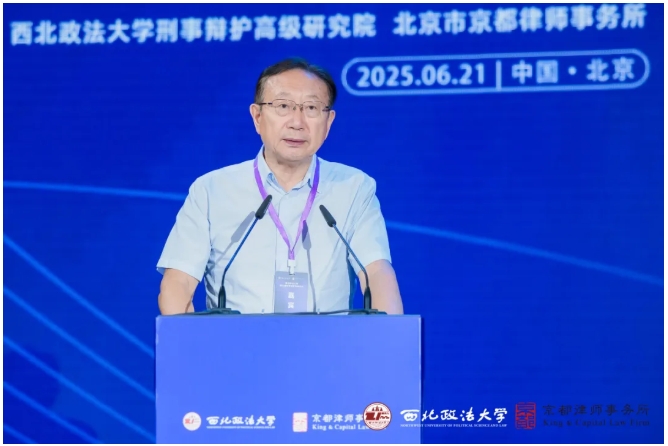
Tian Wenchang, Honorary Director of Beijing King&Capital Law Firm, delivers a speech
In the keynote speeches of the forum, Tian Wenchang, Honorary Director of Beijing King&Capital Law Firm and Honorary President of the Advanced Research Institute for Criminal Defense at Northwest University of Political Science and Law, Bian Jianlin, Professor at China University of Political Science and Law, and Lao Dongyan, Professor at Tsinghua University, further elaborated on the principles of jurisdiction in criminal cases. They not only analyzed the origins of jurisdiction from a legal perspective, but also pointed out that in the Internet age, there is an urgent need to resolve the issue of jurisdiction over cybercrime.
“As everyone knows, traditional jurisdictional principles are relatively simple, yet even these simple principles have sparked constant debate in practice. The emergence of cybercrime has further complicated jurisdictional issues related to the location of the crime,” Tian Wenchang stated in his keynote speech. He noted that cybercrime challenges traditional jurisdictional boundaries, and when combined with profit-driven law enforcement and local protectionism, often leads to jurisdictional chaos caused by power abuse. He hopes to discuss and study the above issues, as well as the challenges and obstacles faced by the legal profession in jurisdictional defense practices, to seek solutions to these challenges.
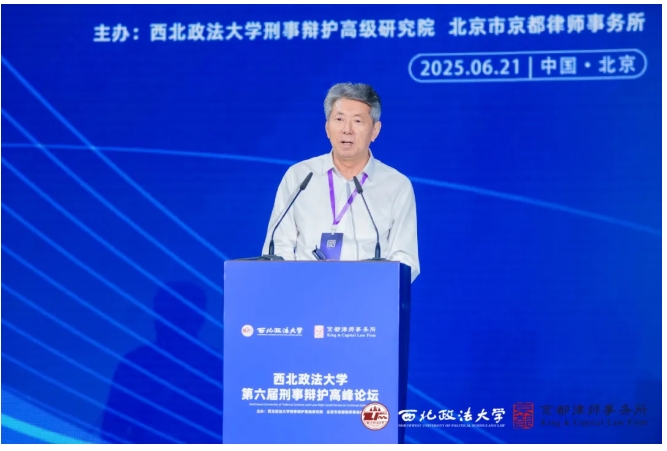
Professor Bian Jianlin of China University of Political Science and Law delivers a speech
“I refer to it as the source and boundaries of investigative authority.” " Bian Jianlin mentioned jurisdiction in his keynote speech, emphasizing that clarifying jurisdiction not only helps regulate the exercise of investigative authority but also facilitates the smooth progress of litigation. He believes that to improve the jurisdiction system, it is essential to thoroughly summarize judicial practice experience and combine it with national conditions, such as considering the addition of related jurisdiction for case filing and establishing a system for dividing cases for trial. These issues should be comprehensively considered during the revision of the Criminal Procedure Law.
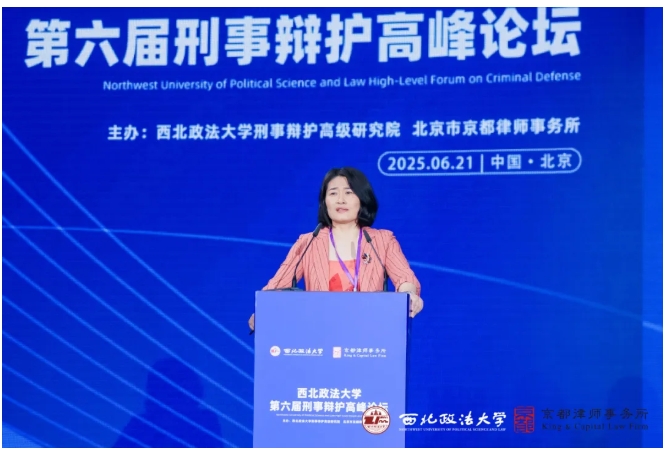
Professor Lao Dongyan of Tsinghua University delivers the keynote speech at the forum
Professor Lao Dongyan of Tsinghua University further discussed the principles of criminal jurisdiction in the digital age. She stated that the traditional principle of territorial jurisdiction may undergo a fundamental paradigm shift in the context of cybercrime. “If jurisdiction is still determined based on IP addresses or the location of servers, the entire paradigm remains constrained by the original principle. Some servers are located overseas, on the high seas, or even in space, leaving no clear jurisdiction.” Currently, the legal norms of the offline world differ from those of the online world, and it is imperative to address how jurisdiction issues in cybercrime should be resolved.
Lao Dongyan emphasized that to resolve jurisdictional issues in the long term, it is indeed necessary to establish a jurisdictional objection procedure. This procedure should not be implemented solely at the court stage; it could be considered for the investigative stage, allowing defense attorneys to file jurisdictional objection lawsuits. Alternatively, a mechanism could be introduced to allow judicial rulings on procedural jurisdictional matters, with the option to appeal.
Dozens of experts and scholars discuss the challenges of jurisdiction regulation and remedies
During the keynote speech session, participating experts and scholars engaged in in-depth discussions around three themes: “The Determination of Jurisdiction and Procedural Operations,” “Current Challenges and Responses to Criminal Jurisdiction Issues,” and “Coordination and Remedies in the Operation of the Criminal Jurisdiction System.”
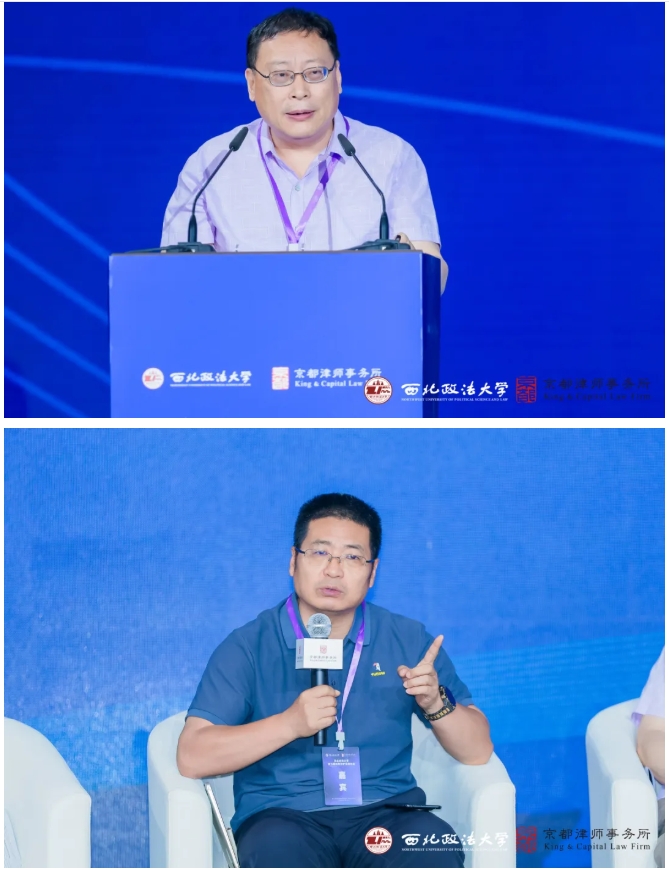
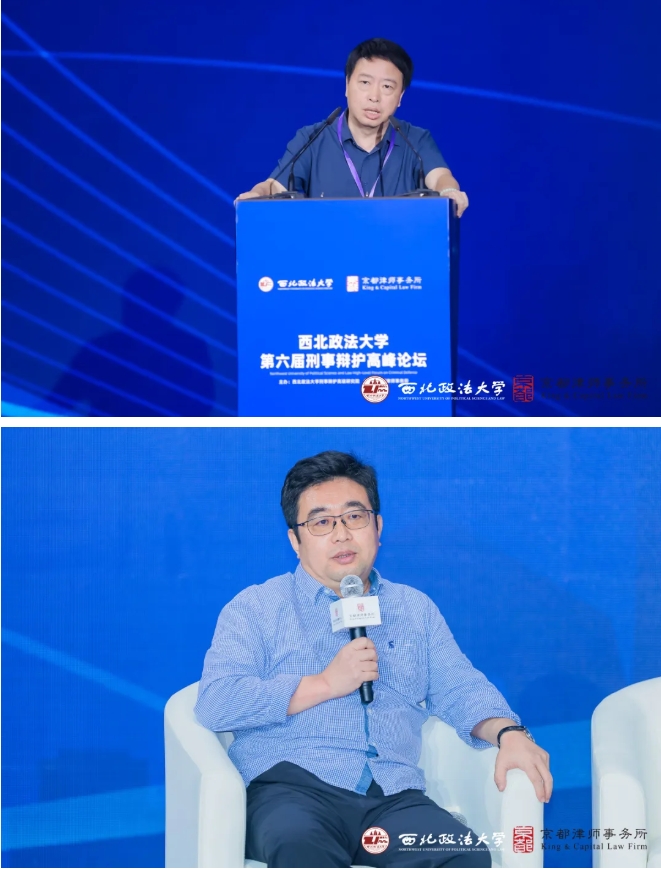
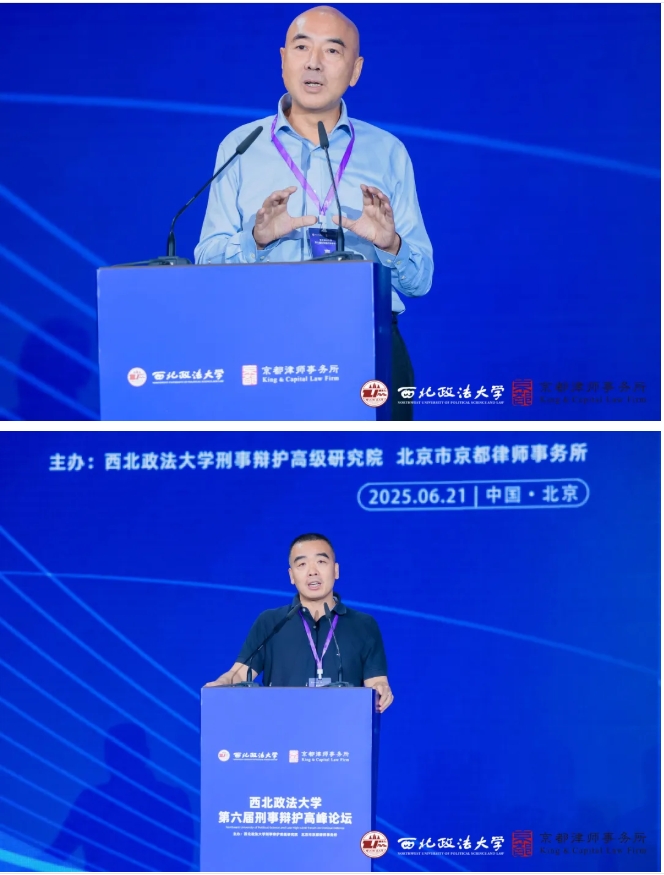
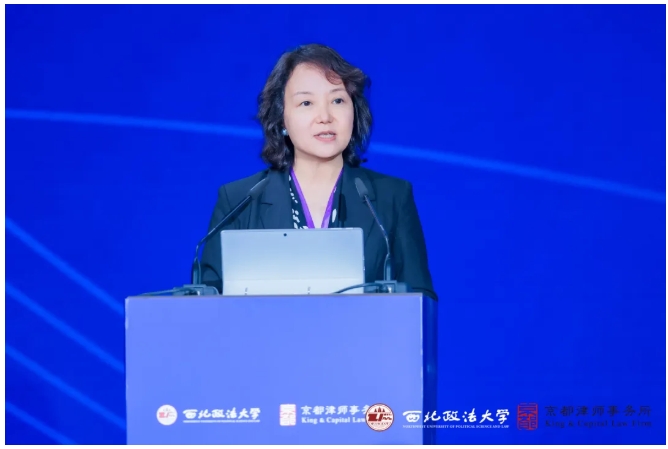
The first session, “Determination of Jurisdiction and Procedural Operations,” was chaired by Professor Wang Minyuan of Zhejiang University. Professor Wu Hongyao of China University of Political Science and Law discussed the functions of criminal litigation jurisdiction rules and reform ideas, emphasizing that the construction of rules for determining jurisdictional authorities should be considered based on a clear distinction between the jurisdictional functions of criminal law and criminal procedure law. Professor Pan Jinguai from Southwest University of Political Science and Law focused on the evidentiary efficacy of cases involving jurisdictional errors, proposing potential solutions such as the rule of defective evidence. Professor Zhang Dong from East China University of Political Science and Law analyzed the root causes of practical issues within China's criminal jurisdiction rules system from a institutional design perspective and explored potential optimization strategies.
Zhu Mingyong, Director of Beijing Jingmen Law Firm and Deputy Dean of the Criminal Defense Research Institute at Northwest University of Political Science and Law, drew on his own criminal defense experience to propose practical changes such as “from case to person” and “from person to case” in criminal jurisdiction, and pointed out the defense space and institutional considerations involved. Ran Juhuo, professor at Northwest University of Political Science and Law and vice president of the Criminal Defense Research Institute of Northwest University of Political Science and Law, proposed possible solutions for future legislative amendments from the perspective of the causes of “profit-seeking” law enforcement. Liang Yali, director of the Criminal Defense Center of Beijing King&Capital Law Firm and vice president of the Criminal Defense Research Institute of Northwest University of Political Science and Law, proposed key ideas and possible solutions for future legislative reforms based on the application of criminal case jurisdiction rules in practice.
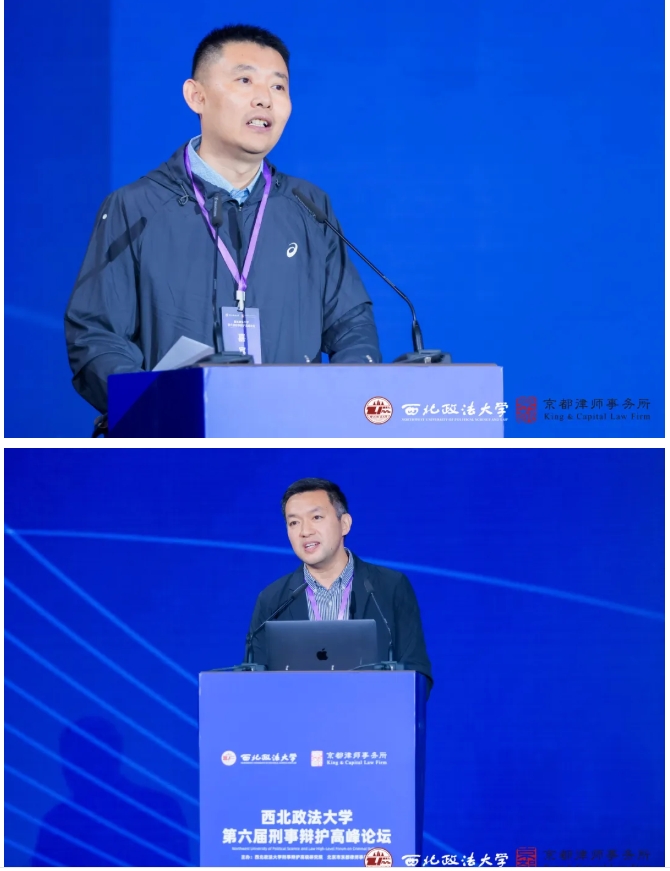

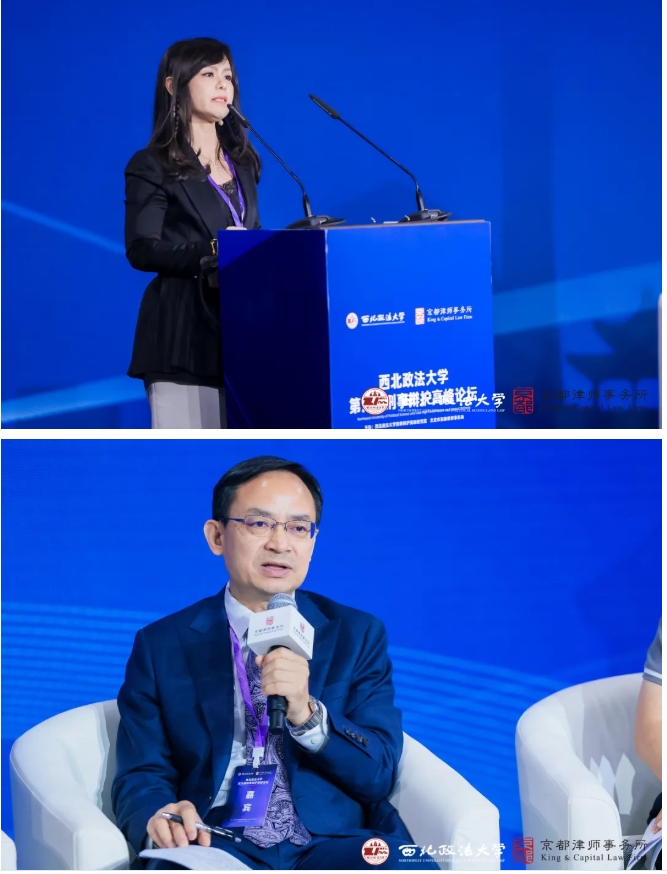
Subsequently, Dong Kun, researcher at the Chinese Academy of Social Sciences, Wu Hongqi, researcher at Peking University, Lan Rongjie, professor at Southwest University of Finance and Economics, Ren Yuxing, lecturer at Northwest University of Political Science and Law, Ma Jingyun, director of Shanghai Haihua Yongtai Law Firm and vice president of the Shanghai branch of the Criminal Defense Research Institute of Northwest University of Political Science and Law, and Zhu Yonghui, director of Beijing King&Capital Law Firm and vice president of the Criminal Defense Research Institute of Northwest University of Political Science and Law, respectively made comments.
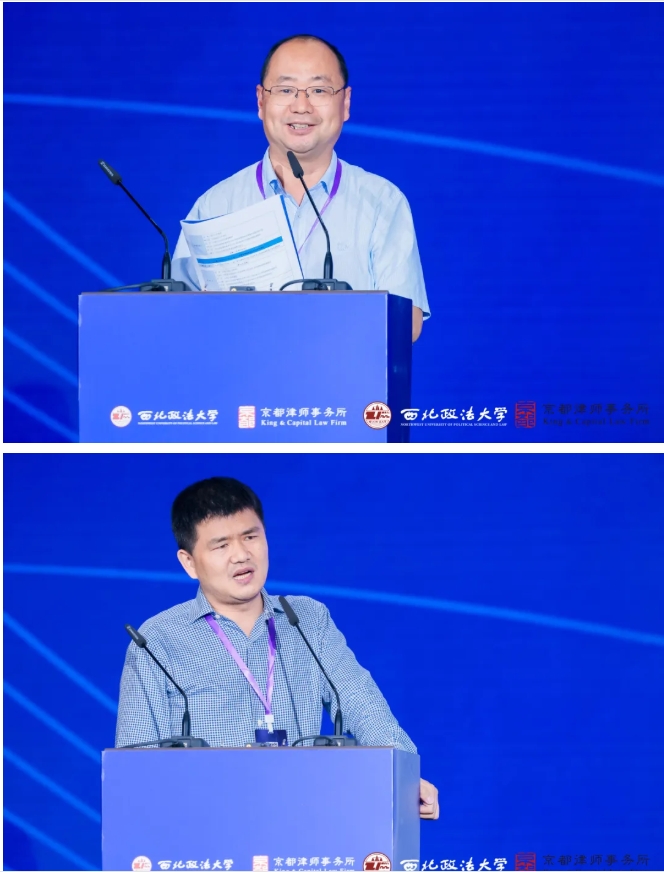
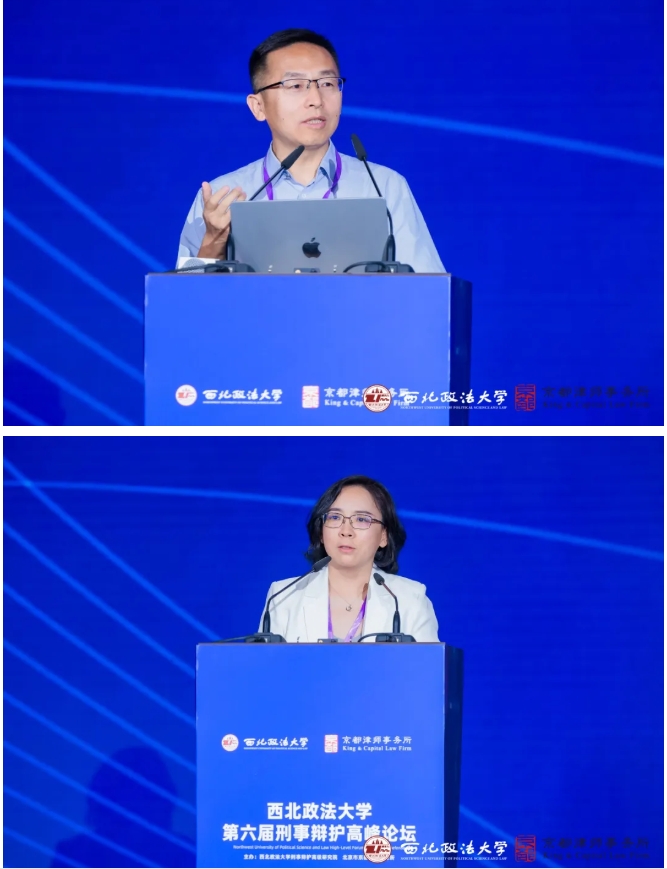
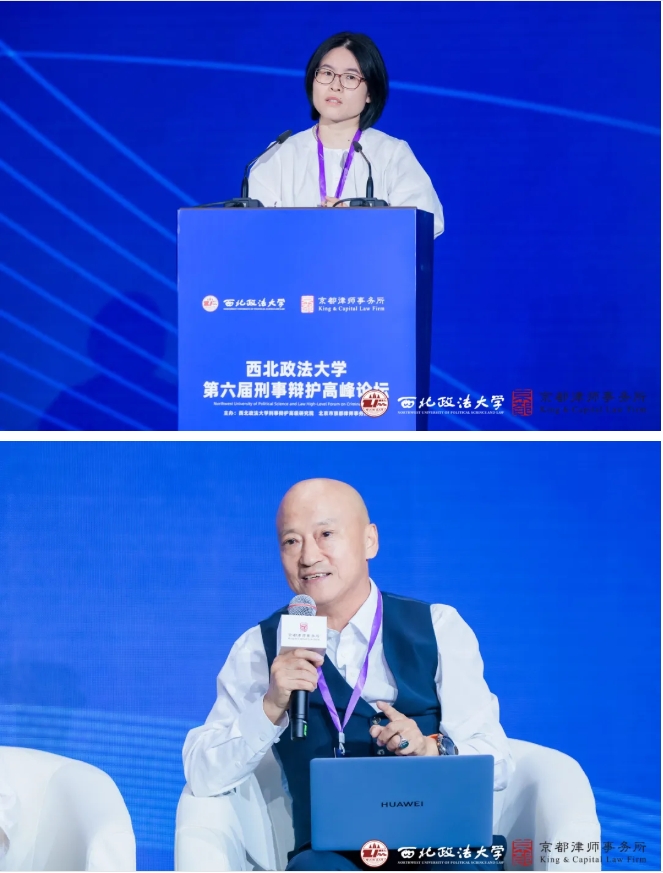
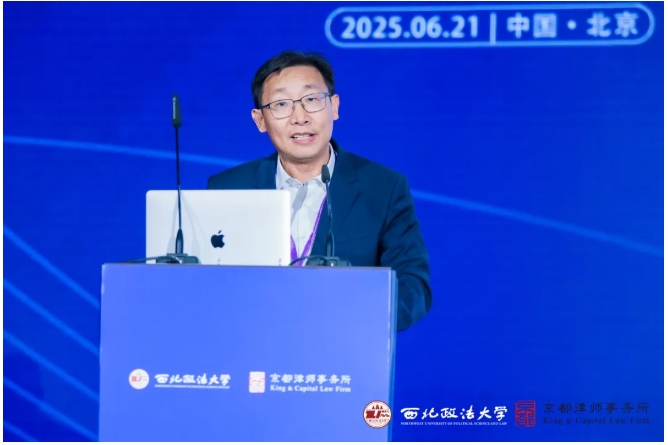
The second session, “Challenges and Responses to Current Criminal Jurisdiction Issues,” was chaired by Professor Feng Weiguo from Northwest University of Political Science and Law. Professor Xie Dengke from Jilin University focused on the judicial challenges of determining jurisdiction in the era of cybercrime and proposed potential legislative reforms as a response. Professor Feng Junwei from Shandong University focused on jurisdiction issues related to transnational criminal offenses and proposed strategies based on recent practical cases. Professor Pei Wei from Beihang University discussed criminal litigation jurisdiction in cross-border cybercrime enforcement under the framework of the United Nations Convention on Cybercrime, proposing strategies for China to address cross-border cybercrime. Associate Professor Pan Xia from Ocean University of China focused on jurisdiction rules for virtual currency-related crimes, proposing strategies such as establishing multiple conflict resolution pathways when multiple countries assert jurisdiction in cross-border cases.
Cao Chenfeng, Senior Partner at Inner Mongolia Shouzheng Law Firm and Deputy Dean of the Hangzhou Branch of the Criminal Defense Advanced Research Institute at Northwest University of Political Science and Law, shared his insights on current jurisdictional issues based on practical case handling experience. Zang Desheng, senior partner at Beijing King&Capital Law Firm and vice president of the Beijing branch of the Criminal Defense Research Institute of Northwest University of Political Science and Law, proposed four defense strategies against improper designation of jurisdiction: early objection, early application, combination with evidence defense, combination with recusal application, and combination with substantive defense.
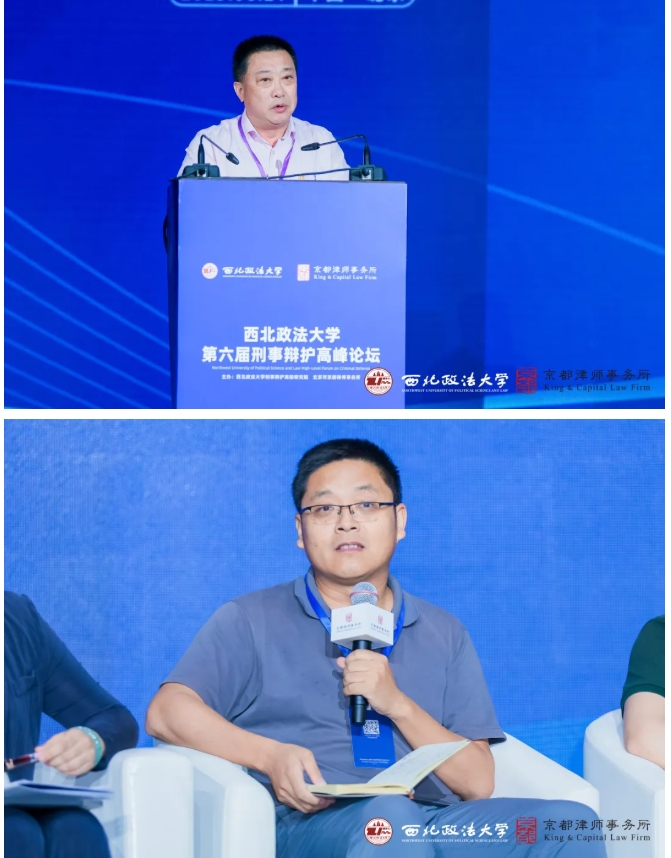
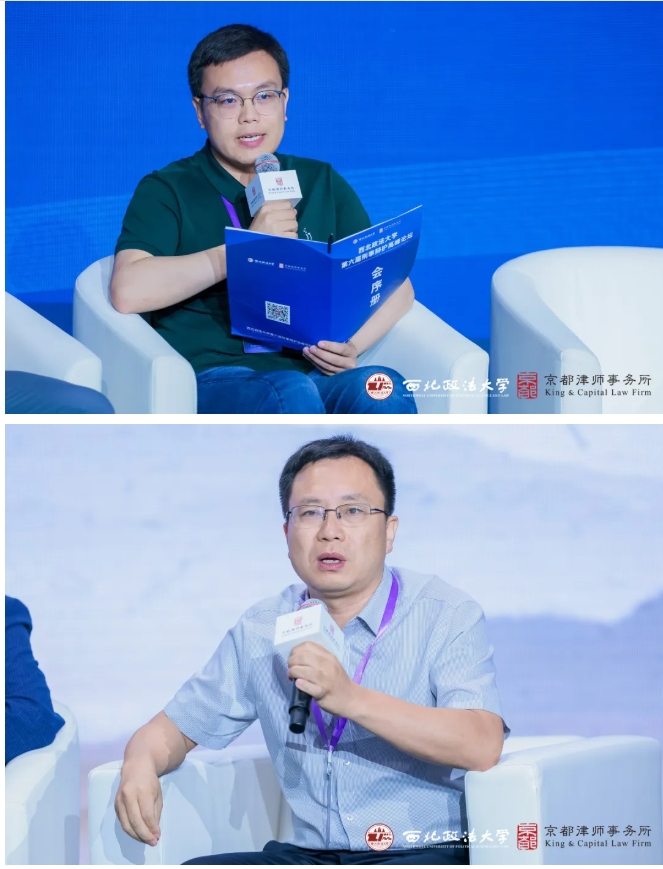
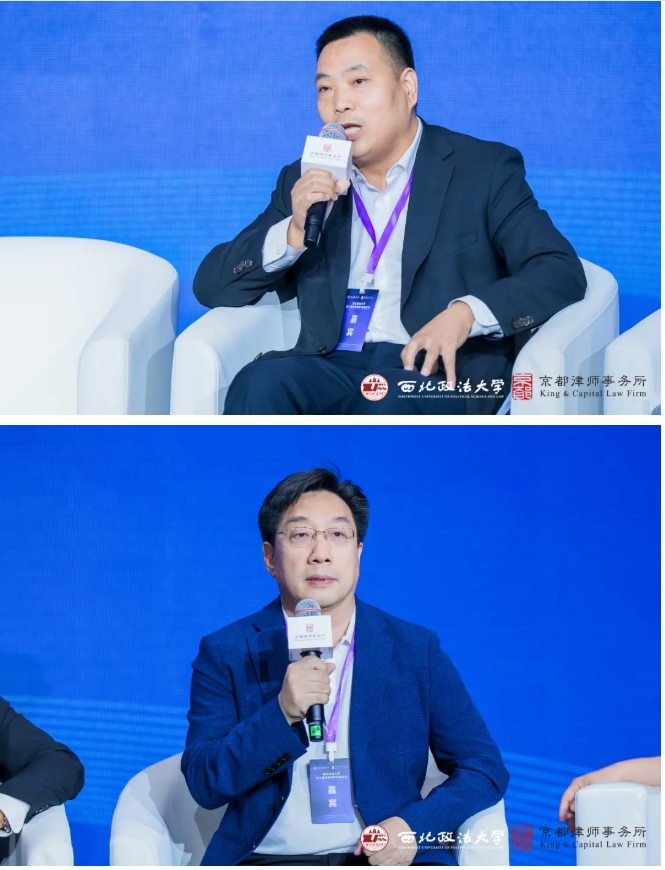
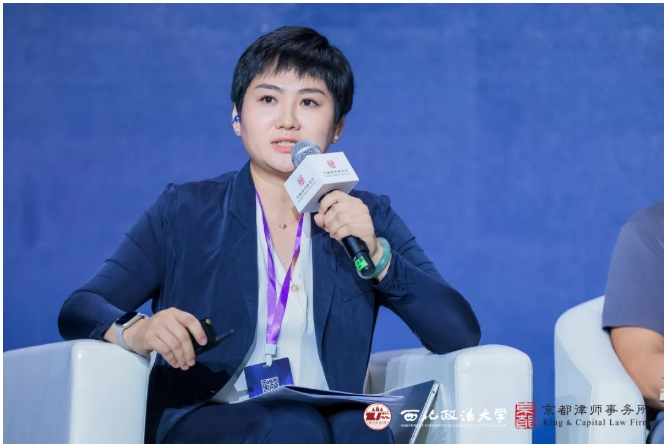
Subsequently, the discussion was moderated by Cai Hua, Director of Guangdong Xiao Feng Law Firm and Deputy Director of the Criminal Defense Research Institute of Northwest University of Political Science and Law. Gao Tong, professor at Nankai University; Bao Wenqiang, lecturer at China University of Political Science and Law; Zhang Jie, distinguished professor at Central South University Law School; Li Hongliang, director of Shaanxi Zecheng Law Firm and director of the Criminal Law Committee of the Shaanxi Provincial Bar Association; Han Zhe, director of Beijing Shihang Law Firm and vice president of the Criminal Defense Research Institute of Northwest University of Political Science and Law; and Wang Xingtong, senior partner at Beijing King&Capital Law Firm, each gave a speech.
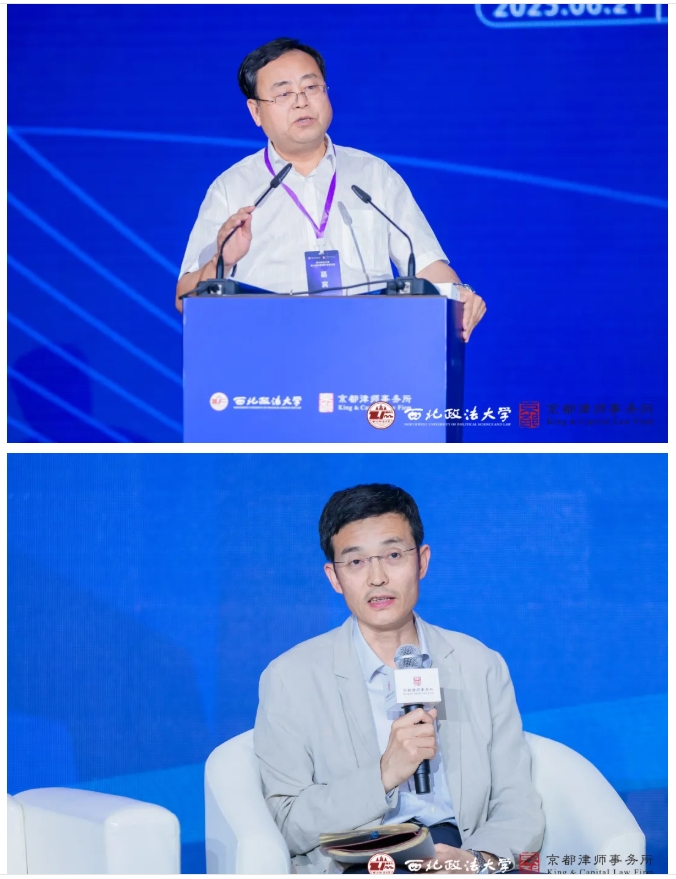
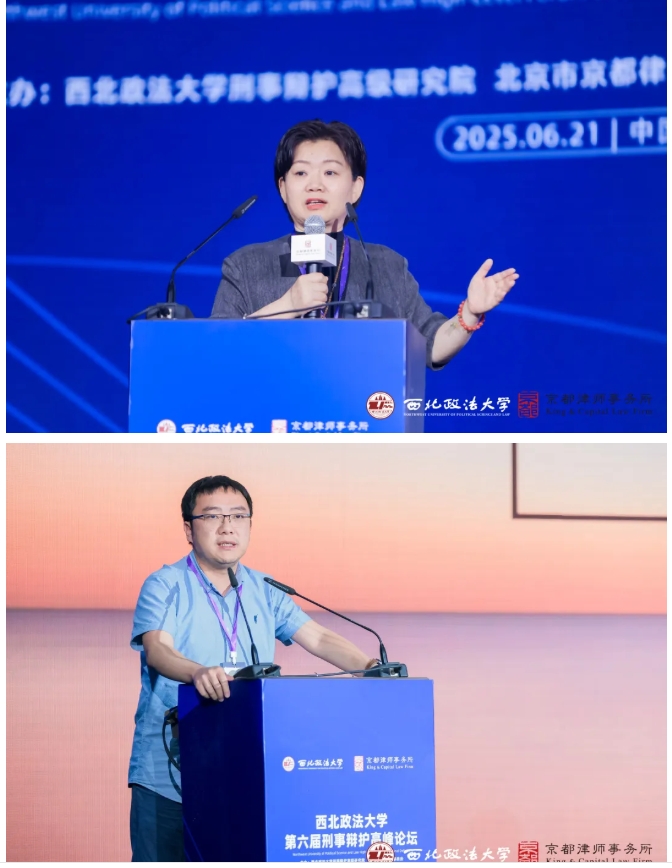
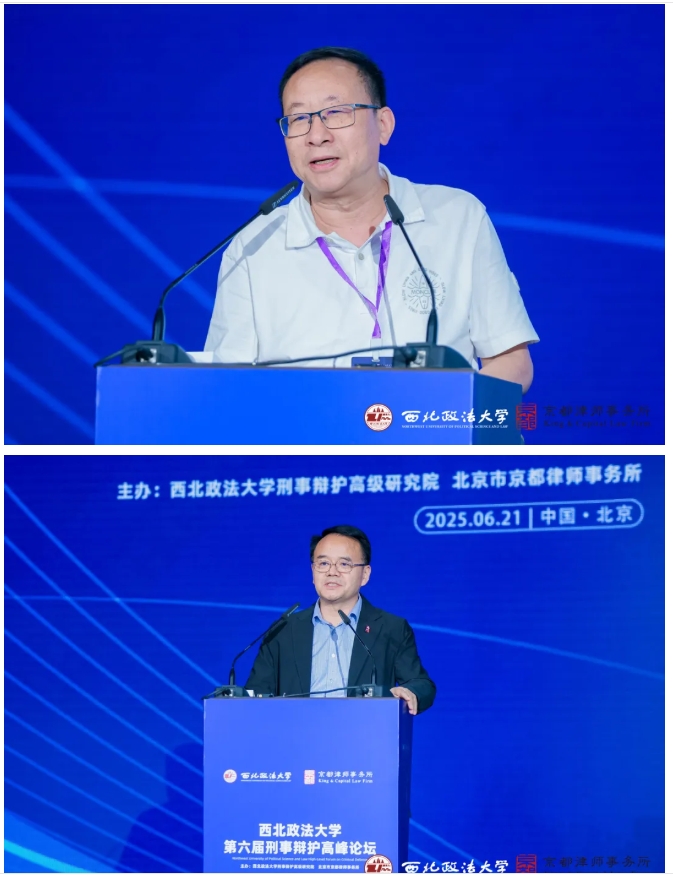
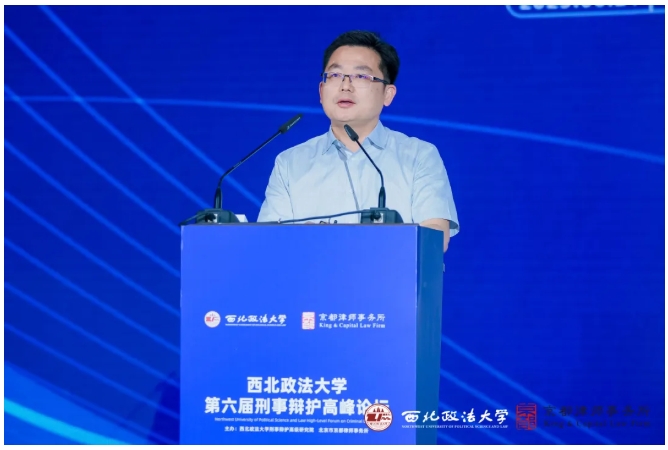
The third session, “Coordination and Remedies in the Operation of the Criminal Jurisdiction System,” was moderated by Hua Yang, director of Beijing King&Capital (Dalian) Law Firm and dean of the Dalian Branch of the Criminal Defense Research Institute of Northwest University of Political Science and Law. Cheng Lei, professor at Renmin University of China, explored the issue of jurisdiction remedies from the perspective of legal provisions and proposed clear and effective policy guidelines. Men Jinling, Associate Professor at the University of Chinese Academy of Social Sciences and Deputy Dean of the Dalian Branch of the Criminal Defense Research Institute of Northwest University of Political Science and Law, delivered a speech titled “Coordination Between Jurisdiction and Recusal,” emphasizing that the rationale for jurisdiction is based on the primary crime scene and social influence, while the rationale for recusal is based on conflicts of interest. She called on litigation law scholars to provide more conceptual tools for practical analysis. Cheng Long, Associate Professor at Yunnan University, pointed out the shortcomings of designated jurisdiction, including the absence of legal norms for designated jurisdiction during the investigation stage, the overlap between investigative jurisdiction and preliminary trial jurisdiction, confusion over transfer of jurisdiction, and designated jurisdiction. He highlighted the legal issues of power misalignment, functional misalignment, purpose misalignment, and interpretative misalignment in designated jurisdiction, and proposed a reconstruction plan for designated jurisdiction under the context of amendments to the Criminal Procedure Law.
Wang Shaopeng, Chief Partner of Hubei Lifeng Law Firm and Deputy Dean of the Criminal Defense Advanced Research Institute at Northwest University of Political Science and Law, addressed the practical shortcomings of the criminal jurisdiction objection remedy mechanism and proposed restructuring China's jurisdiction objection remedy mechanism through legislative improvements and procedural reforms. Mao Lixin, Director of Beijing Shangquan Law Firm and Deputy Dean of the Criminal Defense Research Institute at Northwest University of Political Science and Law, argued that the exercise of investigative authority should be dynamically controlled, and that the revision of the Criminal Procedure Law should align with the direction of legal modernization and adhere to the principle of constraining power through rights. Peng Jiyue, senior partner at Beijing King&Capital Law Firm, believes that territorial jurisdiction is related to issues such as “territorial protection” and “profit-oriented law enforcement” in cases, and proposes exploring possible solutions for territorial jurisdiction remedies for official crimes.
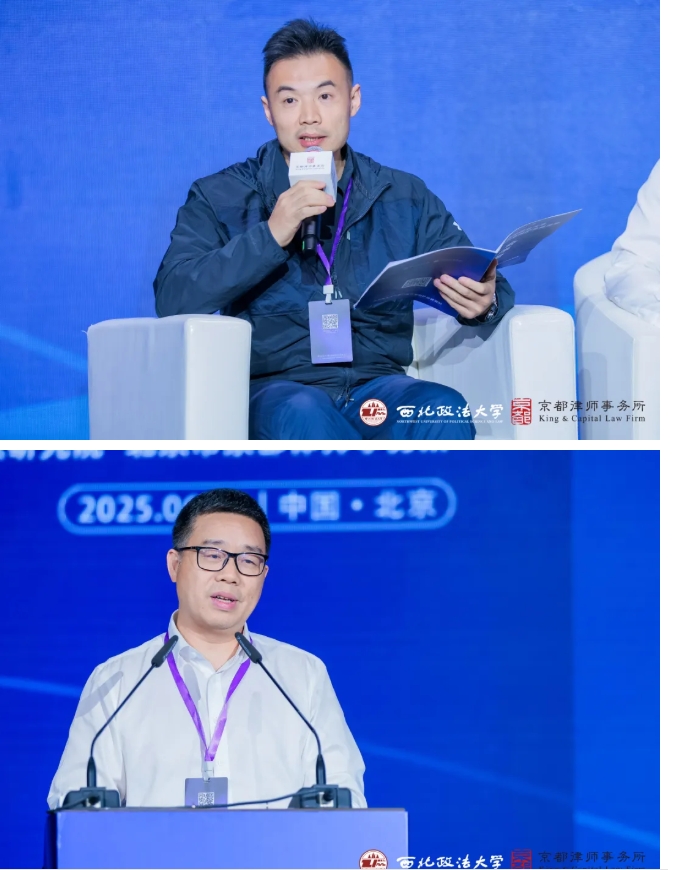
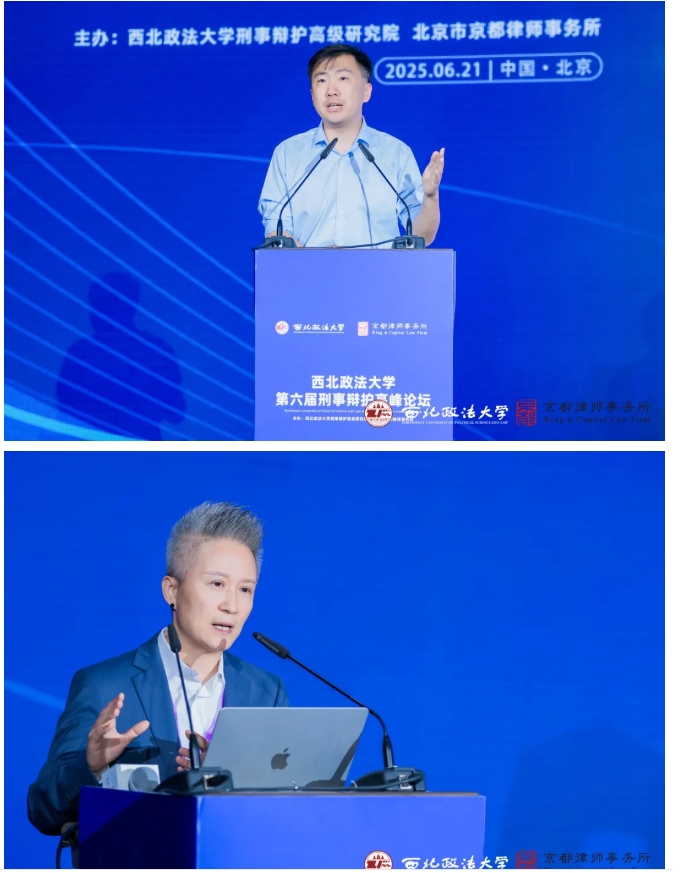
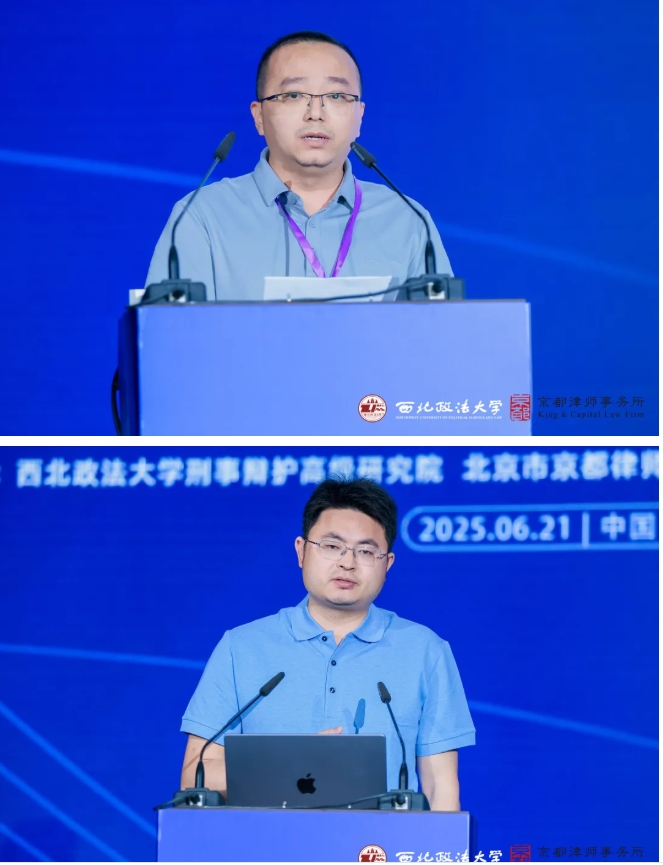
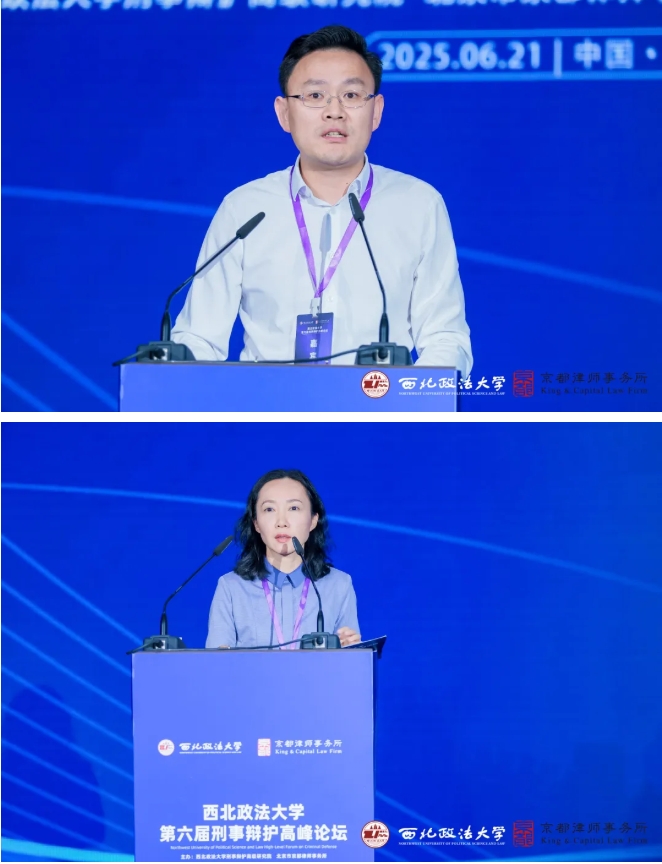
The discussion was moderated by Chen Shi, professor at Zhongnan University of Economics and Law. Deng Chukai, director of Zhejiang Houqi Law Firm, Guo Shuo, professor at China University of Political Science and Law, Ming Can, director of Guangdong Jintang Law Firm, Cai Xingtao, dean of the Criminal Defense Court of Hainan Weidun Law Firm, Fang Jun, associate professor at the University of Chinese Academy of Social Sciences, Nie Yiming, senior partner at Hubei Lifeng Law Firm, and Xu Ying, senior partner at Beijing King&Capital Law Firm, gave speeches.
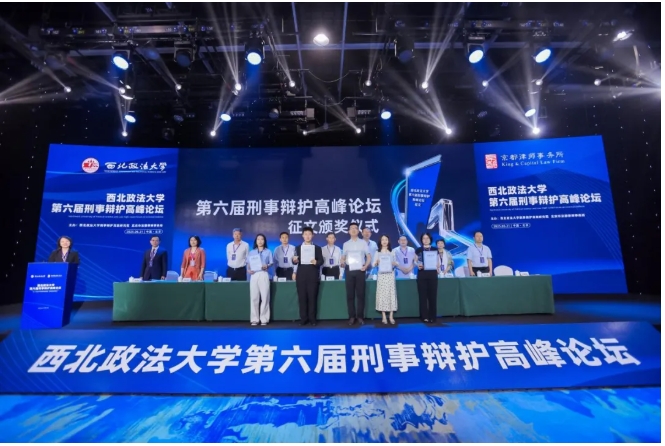
Award Ceremony for Outstanding Papers at the 6th Northwest University of Political Science and Law Criminal Defense Summit Forum
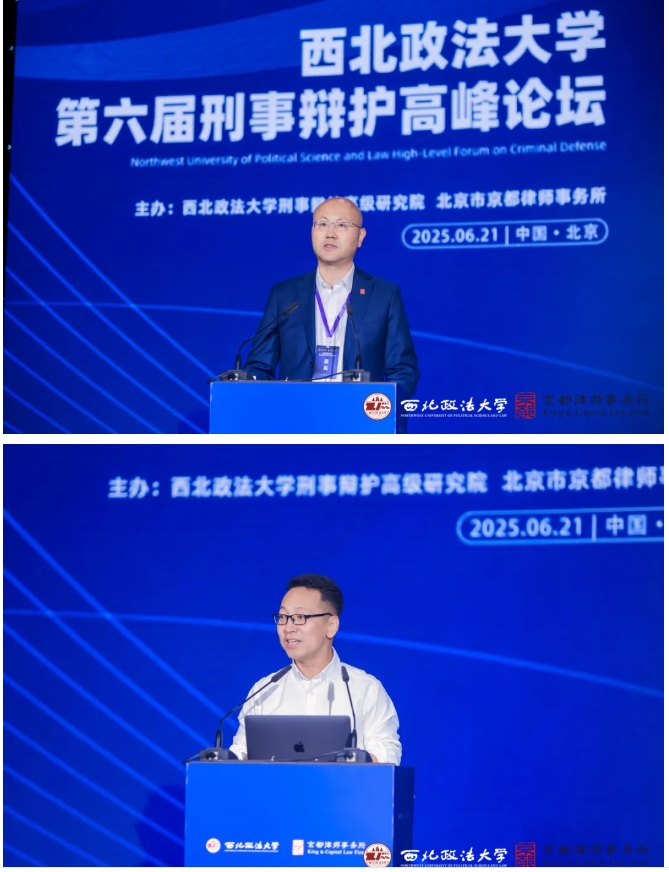
On the same day, Liang Yali, Deputy Director of the Advanced Research Institute for Criminal Defense at Northwest University of Political Science and Law, hosted the award ceremony for the forum's paper competition. After an initial paper submission phase, expert panel reviews, and rigorous selection, a total of 12 outstanding papers were selected, including 6 third-place awards, 4 second-place awards, and 2 first-place awards. Zhu Changzhi, managing partner and CEO of King&Capital Law Firm in Beijing, and Liu Renqi, professor at Northwest University of Political Science and Law and executive dean of the Advanced Research Institute for Criminal Defense at Northwest University of Political Science and Law, delivered the closing remarks for the forum.
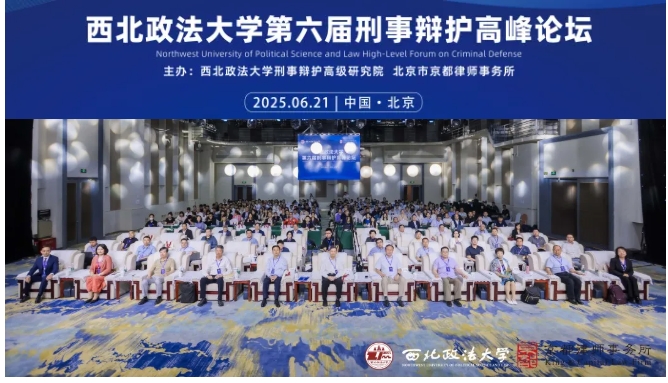
According to reports, the Advanced Research Institute for Criminal Defense at Northwest University of Political Science and Law was established in July 2017 and is dedicated to defense theory research, the promotion of criminal defense culture, the cultivation of criminal defense talent, and the training of criminal defense lawyers. As a high-level, high-quality series of forums hosted by the institute, the Criminal Defense Summit Forum has played an active role in promoting the high-quality development of criminal defense in the new era in China and deepening criminal defense theory research.
The holding of the Sixth Criminal Defense High-Level Forum not only built a bridge for communication and exchange between the academic and practical communities, promoting their deep integration, but also played a role in improving the fair judicial system and mechanisms, as well as advancing the exchange of criminal litigation theory research and practical applications.











